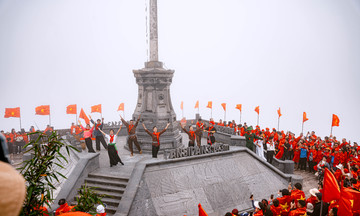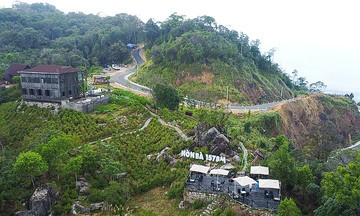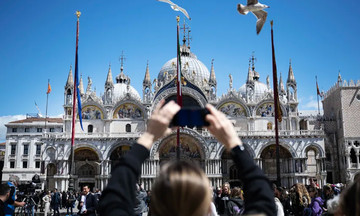Ngo Thu Phuong, a 28-year-old Chinese teacher who lived and studied in Beijing, says China presents some hurdles for independent travelers, mainly related to the language barrier.
Based on her experience traveling to various locations in China, including Beijing, Shanghai, Tianjin, Qingdao, Jinan, Wuzhen, and areas in Yunnan, she offers 6 key tips for those planning their first independent trip.
Planning and finding information
Before each trip, Phuong creates a detailed travel journal outlining her daily itinerary to ensure everything goes smoothly.
She suggests planning using Xiaohongshu (Red Note) to find information on routes, travel tips, good restaurants, and photo spots. This app offers many shared posts with photos and video reviews from Chinese users and also has English language support. Additionally, Baidu Maps is essential for navigating between locations. This app is highly recommended by many independent travelers in China for its accuracy.
To save time and money, Phuong recommends choosing attractions close to each other because China is vast, and travel takes time. On average, she walks about 18,000 steps each day while traveling. Therefore, she usually plans for 1-2 attractions per session, with a maximum of 4 per day to allow time for rest, photography, and meals.
Book high-speed train or plane tickets in advance via Qunar, Feizhu, or other popular apps in Vietnam if there are promotions. Travelers should carefully choose hotels or homestays licensed to accommodate foreigners.
When planning travel within China, Phuong advises carefully checking train station information, especially in large cities like Beijing, which has 7 stations such as Beijing Railway Station, Beijing West, Beijing South, and these stations are very far apart. Mistaking the station could lead to missed connections and canceled trips.
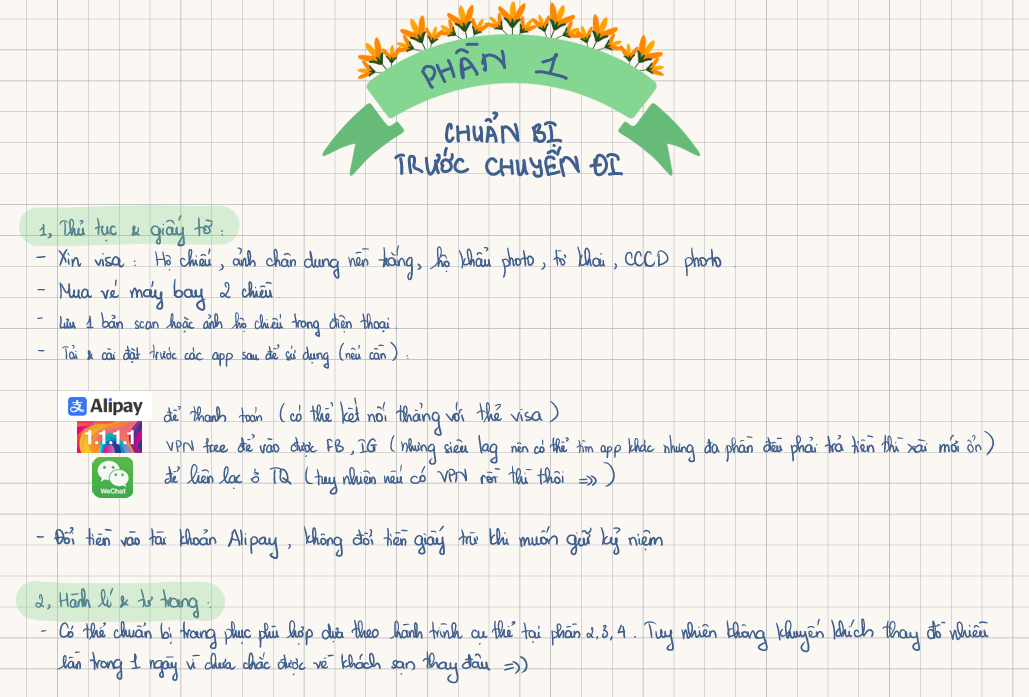 |
A page from Phuong's travel journal during her trip to Yunnan. Photo: NVCC |
A page from Phuong's travel journal during her trip to Yunnan. Photo: NVCC
Furthermore, some popular attractions like the Forbidden City and museums like the National Museum of China require advance booking through apps like WeChat, Alipay, or Qunar. Carefully review ticketing requirements and book early, especially during peak season, to avoid sold-out situations or long queues.
Visa and entry
Phuong advises travelers to thoroughly research the required documents for a Chinese tourist visa. The visa processing time is relatively quick, so travelers should consider the appropriate time to submit their applications.
Upon arrival, Phuong suggests completing the entry declaration form in advance to save time. Travelers should carry minimal cash and prioritize payment via Alipay. Carry-on luggage should be compact, and electronic devices should be easily accessible for inspection.
Going through customs, travelers should wear simple clothing and easy-to-remove shoes, avoiding thick coats or high boots. Phuong emphasizes maintaining a serious demeanor, queuing orderly, and refraining from loud laughter or conversation. If difficulties arise, travelers can ask airport security personnel for assistance, as they are very helpful.
Intercity travel
Travelers should choose their mode of transport based on distance, time, and budget. For short journeys, high-speed rail is the ideal option. Trains are fast, smooth, reasonably priced, and have many schedules and routes to choose from.
For longer distances, such as from Beijing to Guangzhou, travelers should choose air travel despite the higher cost and time spent on procedures and airport transfers. Long-distance buses are difficult to book online and usually require purchasing tickets directly at the station, so Phuong does not recommend them for first-time visitors.
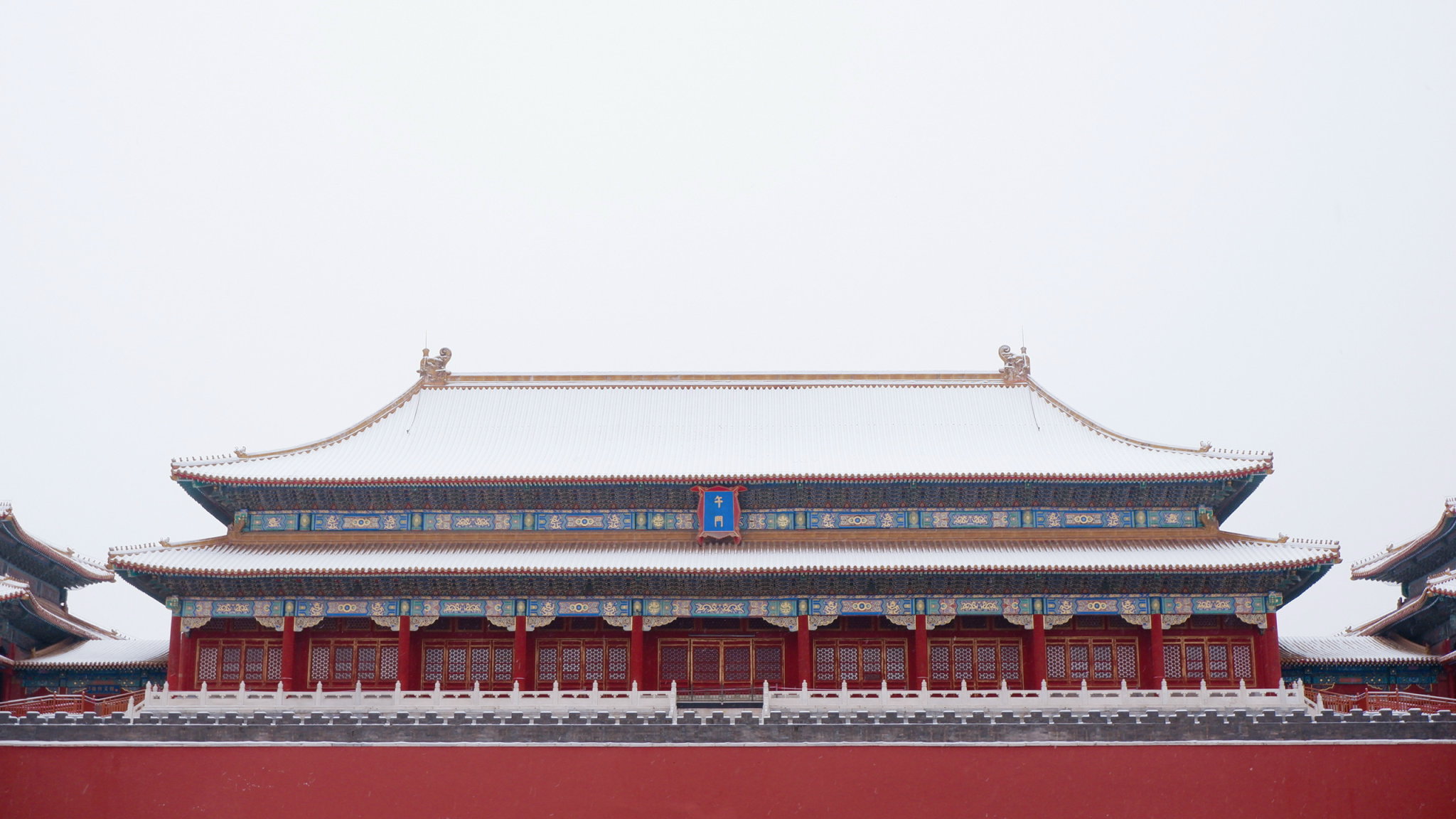 |
A corner of the Forbidden City. Photo: NVCC |
A corner of the Forbidden City. Photo: NVCC
To book high-speed train or plane tickets, Phuong suggests using Feizhu or Qunar. These two apps have user-friendly interfaces, making price comparisons easy, and sometimes offer different promotions depending on the time of booking. Travelers should book early to secure seats and good prices.
Intracity travel
In large cities like Beijing or Shanghai, Phuong recommends prioritizing the subway. This system is convenient, affordable, and has stations near most attractions, especially in Beijing. Travelers can purchase tickets directly at stations or use Alipay with NFC functionality for quick payment.
Buses are also a good option, supporting Alipay payments, but travelers should check routes beforehand to avoid mistakes. For short distances, public bicycles are a convenient option, bookable via Alipay or WeChat.
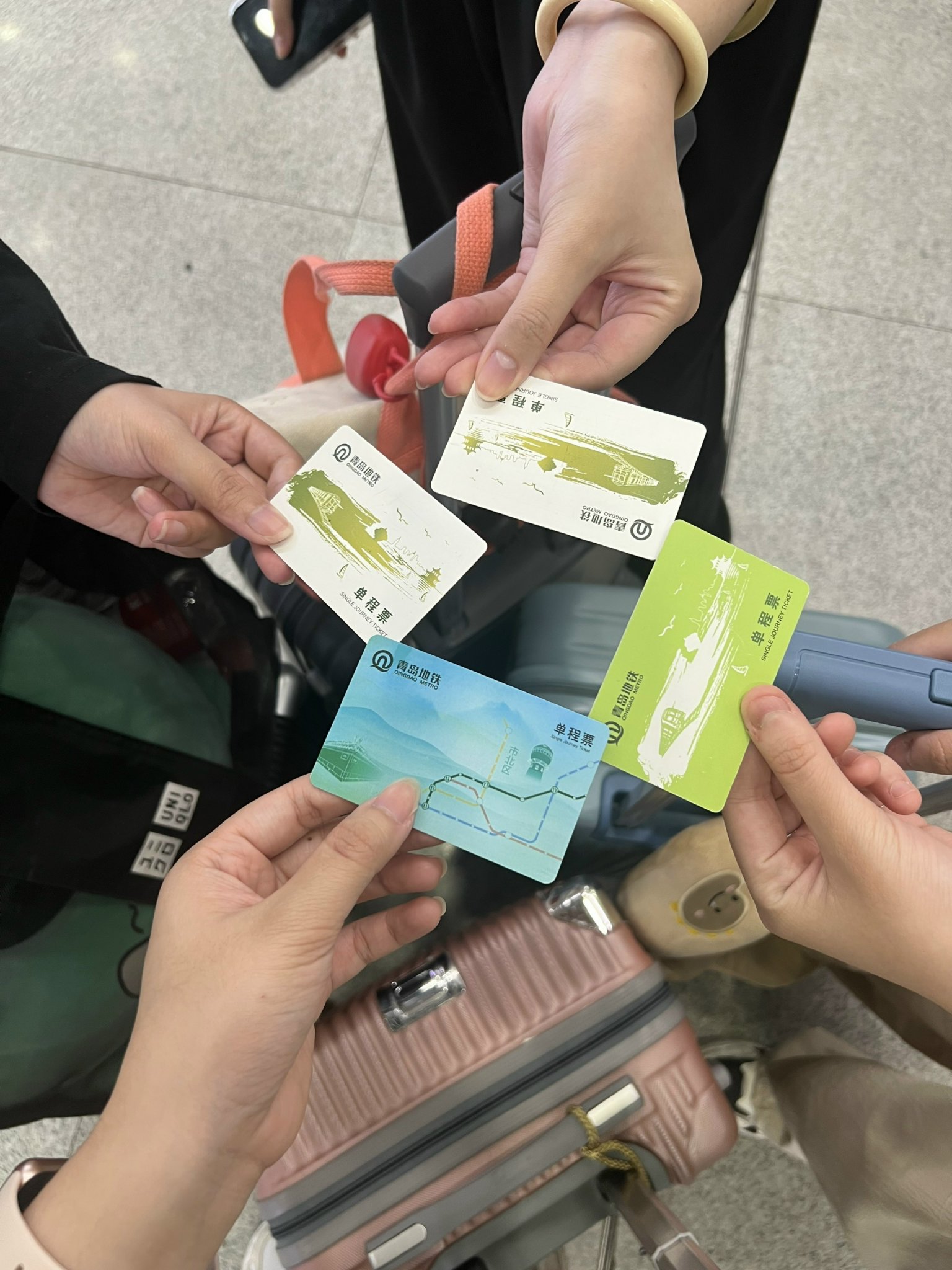 |
Train tickets in Qingdao are card-shaped, while in Tianjin they are round tokens. Photo: NVCC |
Train tickets in Qingdao are card-shaped, while in Tianjin they are round tokens. Photo: NVCC
To avoid getting lost, Phuong emphasizes downloading Baidu Maps to your phone before the trip, as it will be needed constantly. For popular attractions like the Great Wall or Zhangjiajie National Forest Park, Phuong recommends booking tickets in advance through WeChat or Alipay as many places require pre-booking, especially during peak season.
Communication and payment
For those who don't know Chinese, Phuong suggests using Google Translate for direct translation. Few Chinese people use English, so communicating in English is often ineffective. Travelers should download WeChat for easier communication and booking of attractions.
Regarding payment, Phuong says cash is rarely used in major cities, mainly prevalent in border areas. Travelers should install Alipay as it easily links to international bank accounts and supports payment by scanning QR codes at stores, subways, and buses. WeChat Pay requires a Chinese bank account, making it less suitable.
 |
Phuong takes a photo at the Forbidden City. Photo: NVCC |
Phuong takes a photo at the Forbidden City. Photo: NVCC
If a store doesn't accept international cards or cash, travelers can use Alipay. Phuong recommends exchanging a small amount of cash as a backup but notes that vendors might refuse if it's difficult to make change.
Other considerations
For safety, Phuong advises travelers to go out and return early, always carrying valuables, especially passports. Avoid deserted areas and refrain from buying from street vendors due to potential price gouging.
When taking a taxi, Phuong suggests using the Didi ride-hailing app or choosing taxis with meters, and clarifying the fare before using any service.
Regarding culture, Phuong observes that young Chinese people are modern and generally queue orderly. As foreigners, travelers are often forgiven for minor cultural faux pas, as long as they maintain a polite attitude.
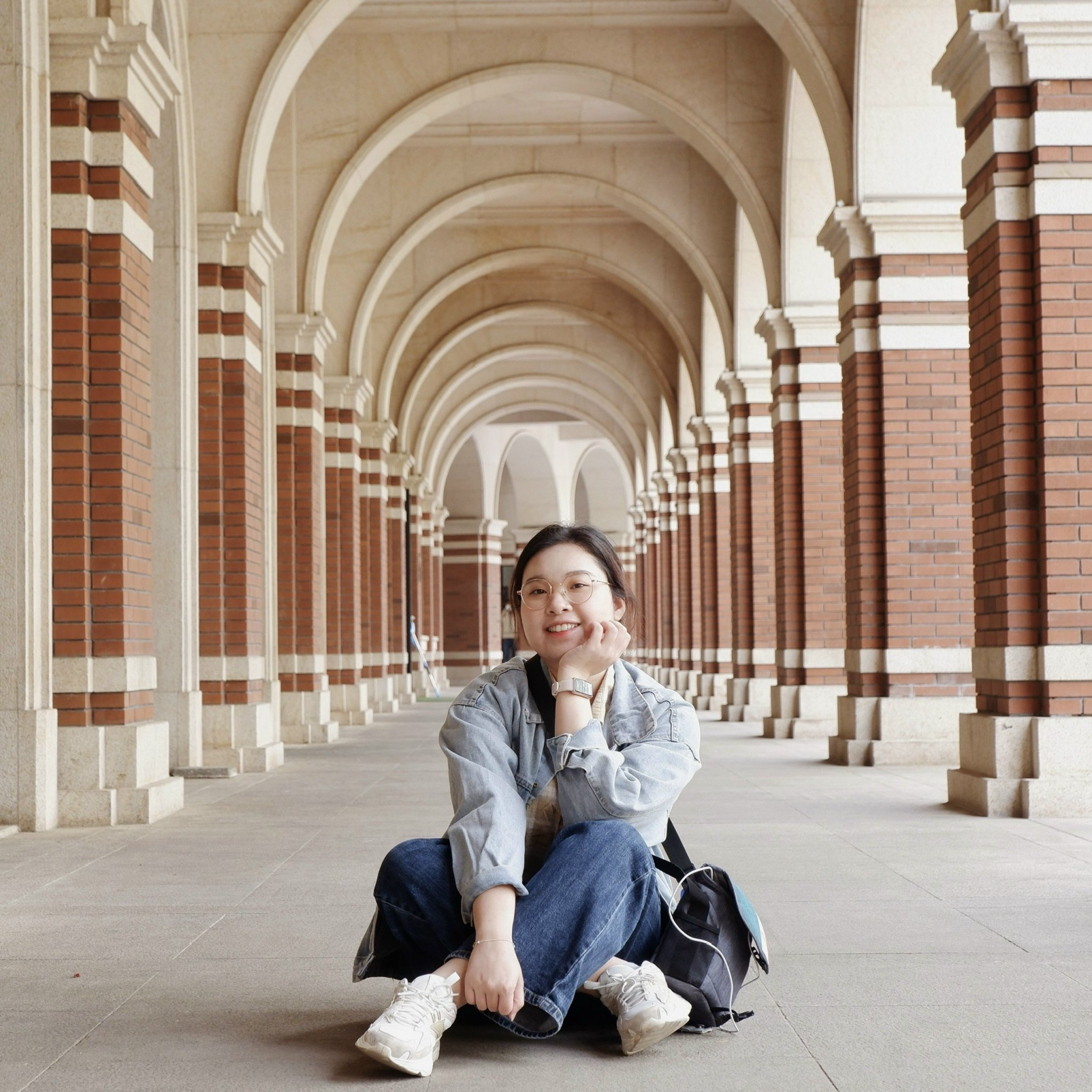 |
Phuong takes a photo in Tianjin. Photo: NVCC |
Phuong takes a photo in Tianjin. Photo: NVCC
Phuong advises avoiding travel during major holidays like Lunar New Year, National Day (Golden Week), or Labor Day, as major cities become very crowded with traffic congestion. Travelers should consider autumn (September-October) to see the fall foliage in Beijing, May-June to explore Suzhou and Hangzhou with pleasant weather, or any season for Yunnan due to its year-round scenic beauty.
In case of unforeseen circumstances, Phuong suggests seeking assistance from the nearest security guard or police officer. They are always willing to provide directions or help resolve travelers' problems. Additionally, travelers should note down the embassy's contact information for emergencies.
Hoai Anh
Photo: NVCC




